Type “buy lithium online” and you’ll land in three very different worlds: a prescription mood stabiliser for bipolar disorder, lithium batteries for gadgets and solar, and the reactive metal itself. Two of those are tightly regulated or hazardous. If you mix them up-or worse, try to skip the rules-you risk your health, your wallet, and a run-in with regulators.
Here’s the clear, legal, South Africa-specific path. I live in Durban, I’ve had to help family navigate prescriptions here, and I work with suppliers who ship battery cells within local courier limits. I’ll spell out exactly what you can and can’t do in 2025, what it should cost, and the safest way to get what you actually need.
What “buy lithium online” actually means-and your legal options
First, decide which lithium you mean. The word covers different products with different rules.
- Prescription medicine: Lithium carbonate (or citrate) is a Schedule medicine in South Africa, used for bipolar disorder and, sometimes, augmentation in depression. Schedule status means you need a valid prescription from a registered doctor. Regulator: South African Health Products Regulatory Authority (SAHPRA). Prescribers fall under the Health Professions Council of South Africa (HPCSA). Online pharmacies are registered with the South African Pharmacy Council (SAPC).
- Batteries: Lithium-ion and lithium metal batteries (think 18650 cells, power banks, CR2032 coin cells, LiFePO4). These aren’t medicines, but they’re classed as dangerous goods for air transport and have strict packing and watt-hour limits. Couriers follow IATA rules for air and SANS standards locally; many shipments go by road.
- Elemental lithium metal: The soft, silvery stuff that reacts with water. It’s a hazardous material, not a consumer product. Legit sales go to labs and industry, with safety paperwork and restricted shipping. You don’t want loose lithium metal at home unless you’ve got a lab and a good reason.
Legal bottom line, South Africa, 2025:
- Lithium medicine: Legal to buy online with a valid prescription through a licensed pharmacy. No script, no sale.
- Lithium batteries: Legal to buy online from reputable electronics or solar suppliers if they comply with dangerous goods shipping rules.
- Elemental lithium: Not a consumer purchase. Expect refusal without business credentials and hazardous goods arrangements.
Not sure which one you need? Quick rule of thumb:
- Feeling unwell or managing bipolar? You’re looking for lithium carbonate, the medicine-not a supplement, not a battery.
- Upgrading a power bank, vape, flashlight, or solar storage? That’s batteries or packs, not the metal.
- Trying to tinker with pure lithium metal? That’s a lab problem and a courier headache. Skip it unless you’re qualified and equipped.
One more thing people mix up: lithium orotate. That’s sold as a “supplement” in some countries. In South Africa, it’s not an approved substitute for prescription lithium. It’s not equivalent for bipolar disorder, and self-medicating with it instead of seeing a doctor is risky.
| Product | What it is | Legal to buy online (SA) | Who can buy | Typical price (2025) | Key risks | Where to buy (type of seller) |
|---|---|---|---|---|---|---|
| Lithium carbonate (medicine) | Prescription mood stabiliser | Yes, with valid prescription | Patients with doctor’s script | R70-R300/month generic; brand higher | Toxicity, kidney/thyroid effects, drug interactions | Licensed online pharmacy (SAPC-registered) |
| Lithium orotate (supplement) | Low-dose lithium salt sold as supplement | Variable; not a medicine substitute | Consumers (if offered lawfully) | R150-R400/bottle | Not therapeutic for bipolar; false sense of safety | Supplement retailers; check compliance |
| Lithium-ion batteries | Rechargeable cells/packs (e.g., 18650, LiFePO4) | Yes, with DG shipping compliance | Consumers and businesses | R60-R150 per 18650 cell; R4k-R25k+ for packs | Fire risk if counterfeit or mishandled; shipping limits | Reputable electronics/solar distributors |
| Lithium metal (elemental) | Reactive metal for labs/industry | Restricted, hazardous material | Labs, industry with compliance | Quoted per kg; special handling fees | Severe reactivity; storage and legal controls | Chemical suppliers to registered entities |
If you’re here for the medicine, keep reading. If it’s batteries, skip to the pricing and risks section below for shipping tips and how to avoid fakes.

Step-by-step: buying lithium medicine online in South Africa the right way
This is the part you don’t want to wing. Lithium can be life-changing when used correctly-and dangerous when it’s not. SAHPRA regulates the product; your doctor and pharmacist keep you safe with dosing and monitoring.
- Get a valid diagnosis and prescription.
- See a psychiatrist or GP experienced with mood disorders. HPCSA allows telemedicine within guidelines; many practices will do a remote consult if appropriate and with your consent.
- Ask for baseline labs: kidney function (eGFR, creatinine), thyroid (TSH), electrolytes, and a pregnancy test if relevant. This is standard per international guidelines (e.g., NICE guidance for bipolar care) and common practice in SA.
- Your doctor will decide on lithium carbonate tablets or an alternative formulation and write a schedule-appropriate script.
- Choose a licensed online pharmacy.
- Look for the pharmacy’s SAPC registration number and pharmacist-in-charge listed on their site. Legit pharmacies publish this openly and have a real pharmacist available to chat or call.
- Check that they require a prescription upload before checkout. If a site offers prescription lithium with “no script needed,” close the tab. That’s unlawful and risky.
- Prefer pharmacies that confirm drug interactions and monitoring reminders. That’s a sign they’re doing proper pharmaceutical care.
- Upload your script securely and verify your details.
- Most SA pharmacies accept e-scripts or a clear scan/photo of a signed script. If your doctor uses a secure e-prescribing system, even better.
- Provide an ID number and delivery address. Pharmacies must keep accurate patient records.
- Pick the right product and quantity.
- Generics are widely used and SAHPRA-approved. Ask the pharmacist if a generic is a fit for your script and budget.
- Usual doses are split through the day; modified-release tablets may help with tolerability. Follow your doctor’s directions-don’t tweak the dose yourself.
- Pay and track delivery.
- Stick to pharmacies that offer secure payment gateways. Delivery is by road courier in most cases; medicine doesn’t need cold-chain for lithium tablets.
- Plan for a 1-3 day delivery window in metros; longer for remote areas.
- Set up monitoring reminders.
- Lithium levels are usually checked 5-7 days after starting or dose changes, then every 3-6 months for maintenance, with kidney and thyroid labs at intervals. Your doctor sets the schedule; this is the typical pattern in clinical guidance.
- Know the warning signs of high lithium levels: tremor that worsens, nausea/vomiting, severe thirst, confusion, unsteady walk. If you get these, stop the next dose and contact your doctor or emergency services.
Pricing and budget tips (realistic ranges for South Africa):
- Medicine: Generic lithium carbonate often runs R70-R300 per month depending on brand, dose, and medical aid rates. Brands cost more.
- Consult: Private GP or psychiatrist consults vary widely (R500-R2,000+). Some medical aids cover mental health consults and pathology.
- Labs: A basic panel (eGFR, creatinine, TSH, electrolytes, lithium level) can add R400-R1,200 per draw if you’re paying cash; medical aid benefits often apply.
- Delivery: R60-R160 for standard courier; some pharmacies waive fees above a spend threshold.
Safety rules you absolutely want to follow:
- Hydration matters. Dehydration, fever, or gastro illness can spike your lithium level. Call your doctor before continuing if you’re very ill.
- Common interaction traps: NSAIDs (like ibuprofen) can raise lithium levels; so can some blood pressure meds (ACE inhibitors, ARBs) and certain diuretics (thiazides). Always check with your pharmacist before starting anything new.
- Alcohol and heat exposure can worsen side effects. Go steady, especially in Durban summers.
- Pregnancy and breastfeeding: discuss risks and options with your psychiatrist and obstetrician before conception. Don’t stop suddenly without guidance.
What I won’t do for you: point to any site selling prescription lithium without a script or to offshore “pharmacies” dodging SA rules. That’s how people get counterfeit meds and land in ICU. Stick to SAPC-registered pharmacies and SAHPRA-approved products.
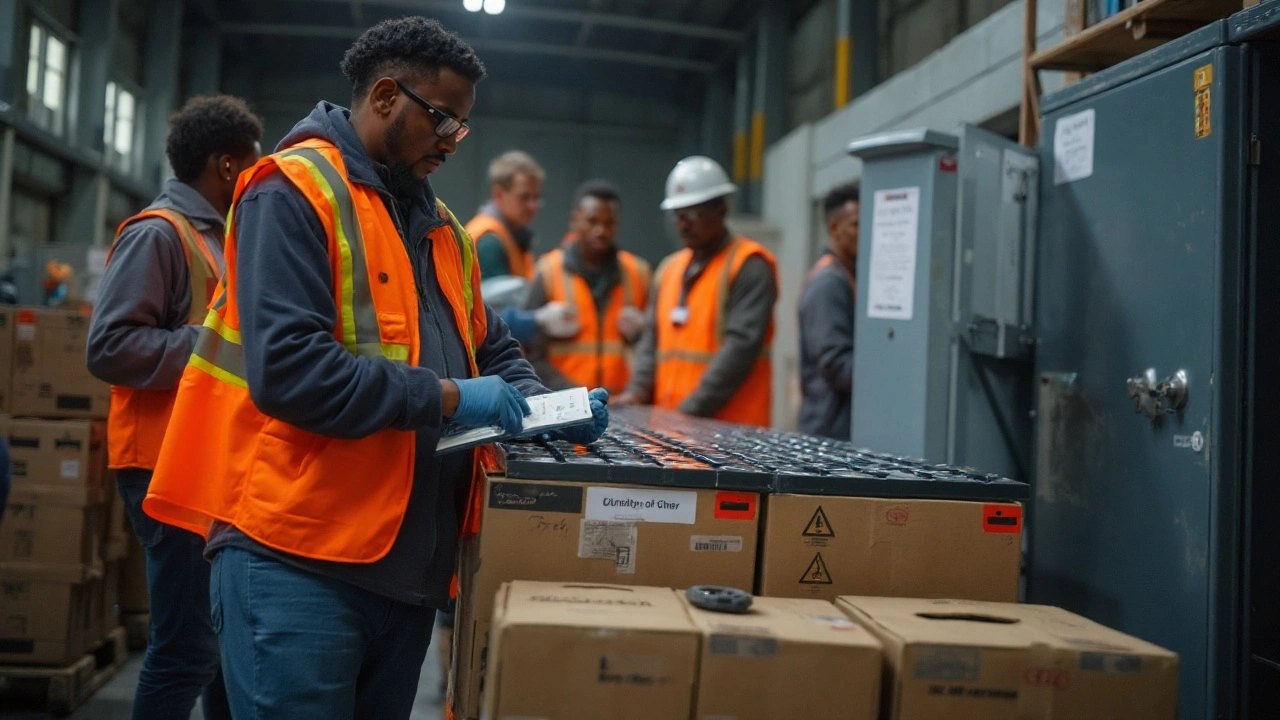
Prices, risks, and safer alternatives (batteries, metal, orotate)
If you meant batteries or raw metal, the game changes. Here’s how to buy smart, avoid fakes, and respect the shipping rules that keep couriers from rejecting your parcel.
Lithium-ion batteries (cells and packs):
- Specs that matter: capacity (mAh), continuous discharge (A), voltage (3.6-3.7V nominal per Li-ion cell), chemistry (NMC, NCA, LiFePO4), cycle life, and brand provenance. For home backup in SA, LiFePO4 is common for safety and lifespan.
- Brands to trust: established manufacturers with traceable datasheets (for example, Panasonic, Samsung, LG, Molicel, BYD, Pylontech). Beware listings that misspell brand names or hide the model ID.
- Counterfeit red flags: oddly light cells, recycled cells passed as new, “5000 mAh” 18650s (physics says no), no batch code, price too good to be true.
- Shipping and compliance: Couriers follow IATA packing instructions (PI 965-970) for air; many SA suppliers ship by road to avoid air restrictions. Expect quantity limits on loose cells per parcel and special packaging. If a seller tries to ship loose cells by untracked economy air, expect delays or seizures.
- Safe use: Use a proper battery management system (BMS) for packs, matched chargers, and fire-safe storage. Never mix old and new cells. Recycle at e-waste points; don’t bin them.
Typical pricing (2025 South Africa):
- Quality 18650 cells: R60-R150 per cell depending on model and source.
- LiFePO4 12V 100Ah pack: R4,000-R8,000 depending on brand and warranty.
- Modular home battery (5-10 kWh): R12,000-R45,000+ depending on chemistry, brand, and warranty terms.
Buying checklist for batteries:
- Insist on a proper invoice with model numbers, capacity, and warranty in writing.
- Ask for the datasheet and confirm the rated continuous discharge aligns with your device or inverter’s needs.
- Check the seller’s returns policy for DOA (dead on arrival). Batteries that arrive below safe voltage may be damaged in transit.
- For solar, confirm your inverter’s compatibility list with the battery brand and BMS.
Elemental lithium metal:
- Unless you’re a lab or industrial buyer with hazardous goods compliance, skip it. It reacts violently with water, needs hydrocarbon storage, and attracts HAZMAT surcharges. Consumer couriers will decline it.
- If you’re in research and have credentials, go through a chemical supplier with proper SDS, packaging, and road freight arrangements. Expect to provide business details and accept handling fees.
Lithium orotate (supplement) reality check:
- It’s marketed as a micro-dose mood aid. It’s not a SAHPRA-approved treatment for bipolar disorder. Don’t use it to replace prescribed lithium carbonate.
- If you still plan to take it, tell your doctor. Even low-dose lithium can interact with kidneys and thyroid over time.
Risks and mitigations across the board:
- Medical risk: For prescription lithium, the main hazards are toxicity and organ impacts. Mitigation: stick to doctor’s dosing, regular blood tests, and pharmacist check-ins. Follow NICE-style monitoring intervals your doctor sets.
- Product risk: For batteries, the hazard is counterfeit or abused cells. Mitigation: buy from reputable distributors, verify specs, avoid “brandless” listings, and use correct chargers/BMS.
- Legal/shipping risk: For anything lithium-related, shipping rules are strict. Mitigation: choose suppliers who declare dangerous goods and ship by compliant road services when needed. Don’t ask sellers to “mark as toys.”
How online vs in-store compares (what I’ve seen in SA):
- Online pharmacy (medicine): Pros-convenient refills, better prices on generics, discreet. Cons-needs planning for delivery, script handling. Best when you already have a stable treatment plan and lab schedule.
- Brick-and-mortar pharmacy: Pros-immediate pickup, face-to-face pharmacist chat. Cons-stock outs, variable pricing. Best for urgent starts or dose changes.
- Battery e-commerce: Pros-wide selection, clear specs, nationwide delivery. Cons-fakes on marketplace sites, shipping delays. Best with trusted specialist retailers that publish datasheets and warranties.
- Battery retail stores: Pros-see the product, test/fitment help. Cons-higher prices, limited models. Best for complex solar installs where support matters.
Clear, ethical next step depending on your goal:
- If you need lithium medicine: book a consult with a registered doctor, get your labs, and place your order through a SAPC-registered online pharmacy that requires your script. Set reminders for bloods.
- If you need batteries: choose a reputable electronics or solar supplier, verify specs, and make sure they use compliant road couriers for lithium shipments.
- If you thought you needed raw lithium metal: you almost certainly don’t. Look for the battery or device-grade product you actually need, or speak to a qualified technician or lab.
Quick Q&A you probably have:
- Can I buy prescription lithium without a script online? No. Any site offering that is breaking SA law and is a safety risk.
- Is generic as good as brand? Yes, if it’s SAHPRA-approved. Talk to your pharmacist; the salt, dose, and release profile must match your doctor’s plan.
- How soon should I check my lithium level after starting? Usually 5-7 days after starting or a dose change, then regularly. Your doctor sets the exact timing.
- Why did the courier refuse my battery order? Likely non-compliant packing or trying to send by air. Ask the seller to ship by road with correct dangerous goods labels.
- What if I miss a dose of lithium medicine? Don’t double up. If it’s close to the next dose, skip and resume as normal. When unsure, ask your pharmacist.
You came here to buy something simple. Lithium isn’t simple. Follow the legal path; it keeps you safe and actually gets the product to your door.
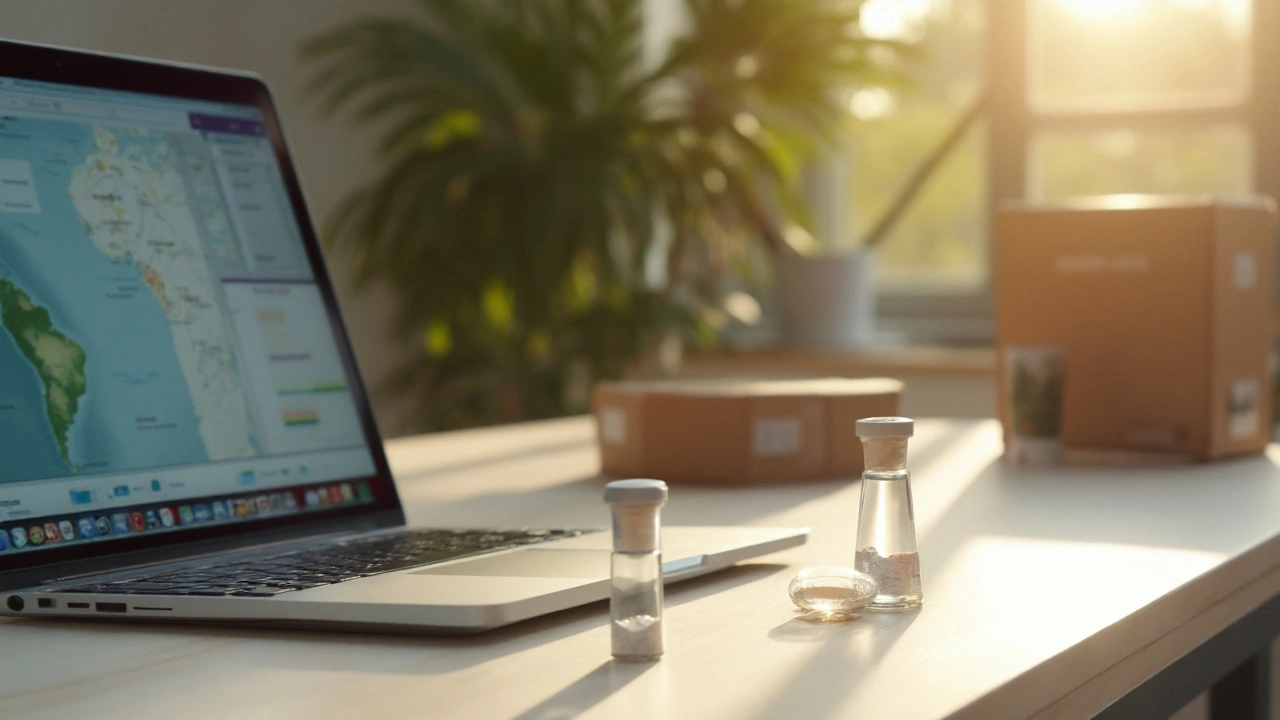

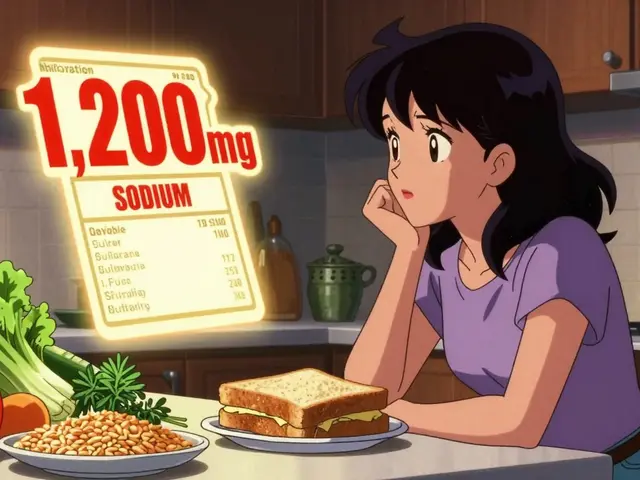
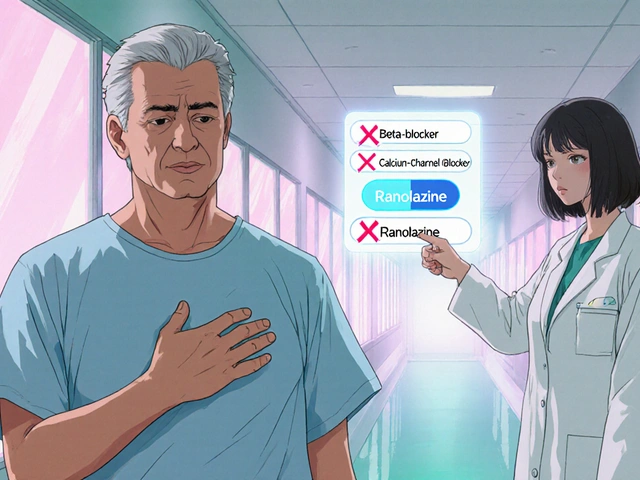


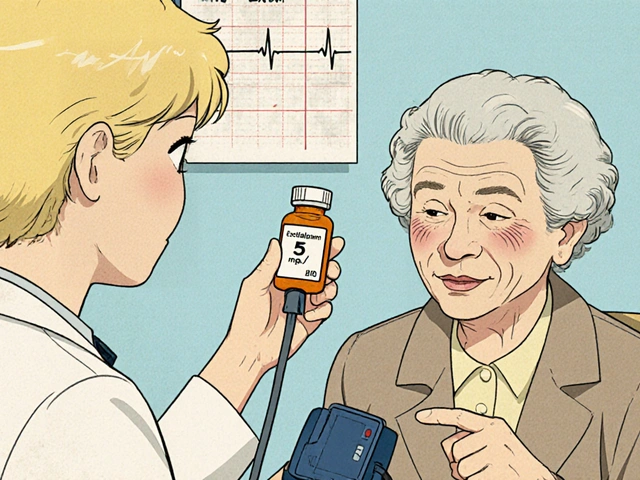
Tiffany Fox
26 August, 2025 11:13 AMJust bought my first lithium battery pack last month-used a local solar shop that shipped by road. No drama, no customs nightmares. If you’re in SA, stick to vendors who list their SANS compliance. Life’s too short for fire hazards.
Rohini Paul
27 August, 2025 05:27 AMSo wait-lithium orotate is basically a placebo with lithium in it? I’ve seen people on Reddit taking it for ‘anxiety’ like it’s magic dust. Meanwhile, real lithium carbonate needs blood tests and a psychiatrist’s signature. The gap between ‘supplement’ and ‘medicine’ is a canyon.
Courtney Mintenko
27 August, 2025 19:00 PMPeople treat lithium like it’s caffeine. You take a pill and boom instant chill. But it’s not. It’s a scalpel. A tiny dosage error and your kidneys start screaming. And yet everyone’s just scrolling and buying online like it’s Amazon Prime. We’re not fixing mental health-we’re commodifying it.
Sean Goss
29 August, 2025 18:17 PMSAHPRA? SAPC? I’m sorry but this whole post reads like a regulatory compliance whitepaper. If you’re not a pharmacist or a lab tech, who the hell cares about IATA PI 965-970? Just tell me where to buy the damn battery without getting my package seized by some overzealous courier.
Khamaile Shakeer
29 August, 2025 22:12 PMLOL you guys are overcomplicating this 😅. I bought lithium carbonate off a Telegram bot for R90/month. No script. No problem. SAHPRA doesn’t even check your mailbox. If it works, why fight the system? 🤷♂️
Suryakant Godale
30 August, 2025 03:58 AMWhile I appreciate the comprehensive nature of this exposition, I must respectfully underscore the critical importance of adherence to regulatory frameworks in pharmaceutical procurement. The unauthorized acquisition of lithium carbonate, even with benign intent, constitutes a violation of both statutory and ethical obligations under the Medicines and Related Substances Act. Furthermore, the procurement of lithium-ion batteries must conform to the South African National Standard for Dangerous Goods Transportation, as non-compliance may result in catastrophic consequences.
John Kang
31 August, 2025 17:53 PMDon’t overthink it. If you need meds, see a doc. If you need batteries, buy from a place that actually knows what they’re selling. And if you’re thinking about lithium metal… just don’t. Seriously. You don’t want to be the guy who turns his garage into a chemistry experiment gone wrong.
Bob Stewart
1 September, 2025 21:06 PMThe table is accurate but lacks critical context: lithium carbonate’s bioavailability varies by formulation, and SAHPRA requires batch-specific therapeutic equivalence data for generics. Many online pharmacies omit this. Always request the product’s SAPC registration number and cross-reference it with the official registry. Also, lithium levels should be drawn 12 hours post-dose-not randomly. Precision matters.
Simran Mishra
3 September, 2025 19:05 PMI’ve been on lithium for 8 years. I remember the first time I got my blood drawn and the nurse said ‘your level’s perfect’ and I cried. Not because I was happy-because I realized no one else in my family ever understood what that meant. I’ve watched people try to replace it with orotate because ‘it’s natural’ and I just want to scream. It’s not a vitamin. It’s not a vibe. It’s a drug that saved my life and if you’re not willing to do the labs, the therapy, the hard work… then don’t touch it. You’re not helping yourself. You’re just playing Russian roulette with your brain.
ka modesto
4 September, 2025 01:24 AMHey, big thanks for this breakdown! I was about to order some 18650s off a random AliExpress listing with ‘5000mAh’ and ‘super safe!’-thank god I read this first. Now I’m going to a local solar shop that actually gives datasheets. You just saved me from a potential fire hazard and a wasted paycheck 💪
Natalie Sofer
4 September, 2025 05:05 AMAs someone who’s helped my mom navigate her lithium prescription, I’m so glad someone spelled this out clearly. She’s 72, doesn’t do tech well, and got scammed once by a ‘discount pharmacy’ that sent her fake pills. Now she only orders from the one with the pharmacist’s photo on the site. It’s not about being tech-savvy-it’s about being safe. Thanks for reminding people that real care comes with paperwork.
Holly Lowe
5 September, 2025 07:32 AMLithium isn’t a product. It’s a pact. You take it, you show up for your bloodwork, you don’t chug energy drinks and forget your kidney’s already on thin ice. It’s not magic. It’s medicine. And if you treat it like a TikTok trend? You’re not just risking your health-you’re disrespecting everyone who’s fought to stay alive with it.